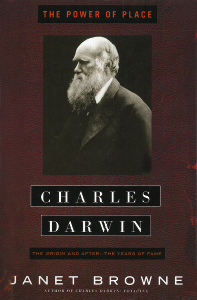Lecture Date: March 15, 2016

By the time of his death Charles Darwin was one of the most celebrated — and one of the most notorious―scientists in the world. Today he is just as famous. Still controversial, Darwin has become an icon of modern science at the same time as his theories have become the basis of modern biology. Professor Browne’s talk will explore how Darwin came to write the Origin of Species and its impact in Victorian England. Taking advantage of the magnificent archive of original correspondence located in Cambridge England, she describe how Darwin was simultaneously a public figure surrounded by controversy and a private family man with many friends and relations―and a succession of small children. The public and private were closely intermeshed in Darwin’s life, not always comfortably.
Speaker: Janet Browne

Janet Browne’s interests range widely over the history of the life sciences and natural history. At Harvard she teaches an introductory course on the history of Darwinism, from Darwin’s day to now. She is greatly interested in the history of animal and plant collecting, old museums, voyages of exploration, garden history, and the science and religion controversies. Previously she lived and worked in England, mostly Cambridge and London. During that time she specialized in reassessing Charles Darwin’s work, first as an associate editor of the early volumes of The Correspondence of Charles Darwin, and more recently as author of a biographical study that integrated Darwin’s science with his life and times. The biography was received generously both in the UK and USA, and awarded several prizes, including the James Tait Black award for nonfiction in 2004 and the Pfizer Prize from the History of Science Society.